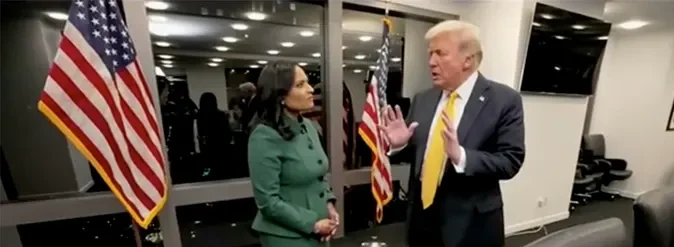A New York Appeals court dismissed former President Donald Trump’s appeal to lift the gag order in his hush money trial. This decision has sparked quite a bit of conversation, and we’re here to break it all down for you.
In a very brief with little reasoning decision, the New York Court of Appeals decided not to entertain Trump’s appeal. They stated that “no substantial constitutional question is directly involved,” leaving the gag order firmly in place.
The decision was made despite the fact that former President Trump has been convicted and the trial portion of the case is over.
Trump’s legal team didn’t stop there, though. They’ve also appealed to Judge Juan Merchan, who oversaw the trial, to lift the gag order since the trial itself has concluded. However, the Manhattan District Attorney’s office is pushing back. They want the gag order to remain until after the sentencing hearing and the resolution of post-trial motions.
In other words, they are doing everything in their power to limit what former President Trump can say.
Steven Cheung, a spokesman for Trump’s campaign, made it clear that the former president and his team aren’t backing down. He called the gag order unconstitutional and argued that it unfairly silences Trump during a critical time in his campaign. According to Cheung, the voters have a fundamental right to hear Trump’s message. However, as of now, both Trump’s attorney, Todd Blanche, and the Manhattan DA’s spokesperson have declined to comment further.
In May, Trump was found guilty of 34 felony counts of falsifying business records. This all stems from a scheme to hide a hush money payment to Stormy Daniels, a porn star, in the lead-up to the 2016 presidential election. The payment of $130,000 was intended to keep Daniels from going public about an alleged encounter with Trump. The trial revealed a web of altered invoices and checks, with key testimonies from figures like David Pecker, former CEO of the National Enquirer.
After a day and a half of deliberation, the jury, comprising seven men and five women, unanimously found that Trump’s actions were intended to commit or cover up crimes, violating both New York state and federal campaign finance laws. Trump’s defense argued that the case was politically motivated, but the prosecutors saw it differently. They requested the gag order to prevent Trump from potentially intimidating witnesses or influencing jurors through his public statements, something he had done in previous legal matters.
Despite the gag order, Trump has often pushed its limits. He was fined $10,000 for multiple violations, including comments about his former attorney Michael Cohen. The judge even warned that further breaches could result in imprisonment. Trump’s attorneys contested the gag order, citing First Amendment rights, but the appellate court upheld it.
Now, with the sentencing date set for July 11, just days before the Republican nominating convention, all eyes are on what happens next. Will the gag order hold? Will Trump face prison time? It’s a complex legal saga that’s far from over, and we’ll be here to keep you updated every step of the way.




